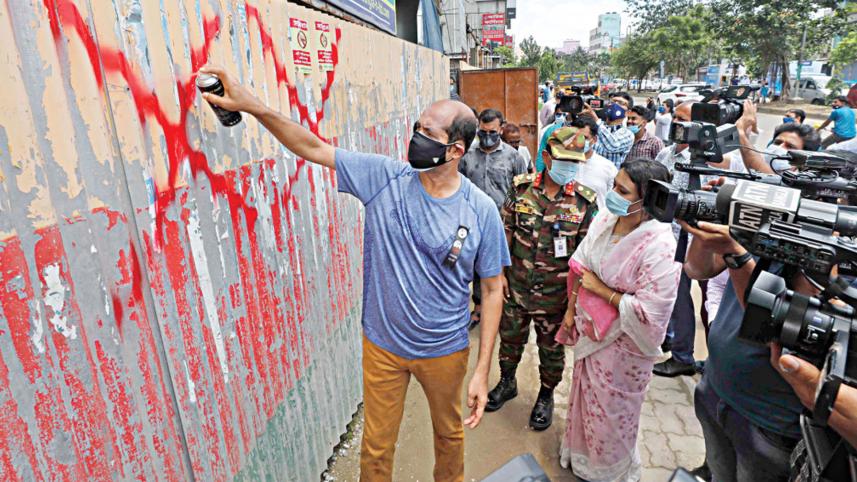The time to combat dengue surge is now

One of our worst fears of current times is too close to realisation for comfort, as the cases of dengue infections keep rising. The last major dengue upsurge was in 2019—when 101,354 people had contracted the virus and at least 179 had died—and the situation this year appears to be even more frightening given the accompanying Covid-19 pandemic and how it has all but crippled our healthcare system.
In case of the dengue surge, the numbers from the Directorate General of Health Services (DGHS) speak for themselves. For instance, in May, there were only 43 hospitalised dengue patients. The number shot to 272 in June, and to an alarming 2,286 in July. Besides, it has also been observed that most of the patients are in Dhaka. Of the 218 people hospitalised with dengue in the 24 hours till Thursday morning, only 10 were from outside Dhaka.
What's worse is that the particular variant of dengue which has been prevalent this year is Serotype-3. According to experts, this variant is one of the more dangerous ones and increases mortality risks in infected patients. Since the dengue surge began last month, we have tried to highlight the severity of this situation given that it is deteriorating at a time when the deadly Delta variant of the coronavirus is also sweeping across the country. If a patient becomes infected with both viruses, not only will it increase their chances of mortality, but their recovery will also be challenging as the treatment for one may interfere with that for the other.
In order to combat the dengue virus, there are no better alternatives to early detection and hospitalisation. Apart from the city corporations' spraying of larvicides/insecticides, citizens should also make sure to not store water (clean or stagnant) anywhere for more than a few days at a time, so that Aedes larvae do not get the chance to breed.
We commend the DNCC's initiative of arranging free dengue testing facilities at 46 centres across its territory. However, we would also like to stress the importance of making similar arrangements elsewhere in the country, especially in all other parts of Dhaka where the concentration of this virus seems to be the most widespread. Testing facilities alone are also not enough to combat the dengue virus. Given the ever-worsening Covid-19 situation, authorities' top priority right now should be to bulk up healthcare resources—and to assist our already overburdened doctors and healthcare staff—in any way possible. We would urge the government to handle the dengue epidemic more seriously than it has done so far, because the challenge is huge and the consequence could be catastrophic if not handled with the urgency it demands.



 For all latest news, follow The Daily Star's Google News channel.
For all latest news, follow The Daily Star's Google News channel.
Comments